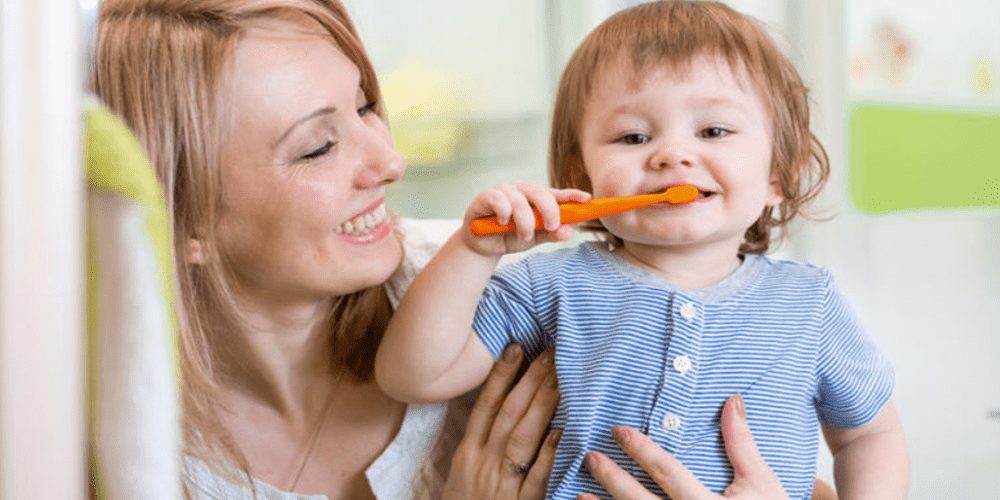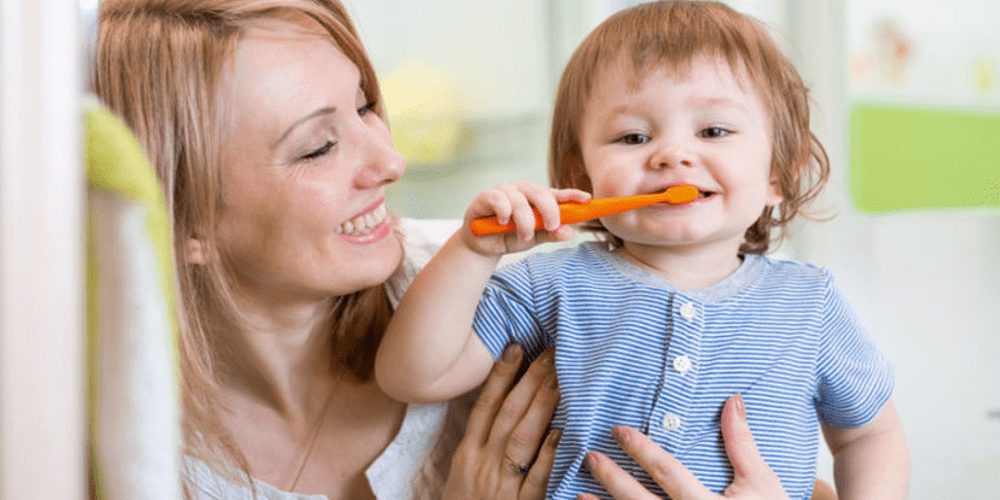Right after your child’s first teeth erupts, they’re at risk of decay. Tooth decay in babies is usually called baby bottle tooth decay. It typically develops in the upper front teeth, but can also affect your baby’s other teeth. Tooth decay in infants and toddlers can sometimes cause irreversible damage to their teeth, making tooth extraction a necessity. Luckily, tooth decay can be easily prevented. Most children develop a full set of temporary teeth before the age of 3. As your child grows up, their jawbone develops and creates more room for adult teeth.
Keep on reading to discover some simple tips on helping your child grow up with beautiful and healthy teeth.
1. Create good habits
Habits that seem to be a natural part of life are typically the strongest ones. Toddlers pay close attention to what their parents do and learn new patterns very fast. Try brushing your teeth alongside your child after eating. This can help teeth brushing to become an integral part of your child’s life. Make sure your child uses a small soft-bristled toothbrush with baby toothpaste. To make things fun, try adding a timer – a tune your child likes, a send timer from their favorite game, or a timer shaped like an animal. Proper dental hygiene is essential to protect your baby’s gums and temporary teeth and ensure the normal development of their adult teeth and even jawbone.
2. Take your child to a dentist
Visiting a dental specialist for routine exams is also important. The leading pediatric dentist can clean your child’s teeth with professional solutions, seal small grooves and crevices on surfaces of their back teeth, and help teach and promote healthy dental habits. More importantly, a pediatric dentist can become a part of the community that cares for your child. A pediatric dentist can diagnose and treat any uncommon dental or orthotic problems at their early stage, preventing any irreversible damage to your child’s teeth. Besides, regular visits to a dental specialist help become a part of those healthy habits essential for preserving your child’s dental health in the future.
3. Ditch the bottle in a bad habit
Allowing your child to sleep with a bottle of juice or warm milk may seem like a good solution to grumpy bedtimes. However, both milk and sugar are high in natural sugars that coat your baby’s teeth when they’re sleeping. These sugars create a perfect breeding ground for bacteria that cause decay and cavities. To preserve your child’s dental health, put them to sleep with a bottle of water instead. Besides, make sure your child brushes their teeth before going to sleep.
4. Offer healthy snacks
High-fiber foods help increase saliva production in the mouth. These foods include oatmeal, apples, berries, citruses, pears, and beans. Saliva helps wash out dangerous oral bacteria and neutralizes acids that dissolve tooth enamel. Foods containing phosphorus and calcium can also help increase the amount of bacteria-fighting saliva in your child’s mouth. Snacks like chocolate, yogurt, milk, and figs fill the bill in this department.
5. Have a plan for dental emergencies
If your child chips or knocks out a tooth, take them to a dentist immediately. Besides, try to find the tooth that was knocked out and take it with you. To keep the tooth moist, put it in milk. A dental specialist will save your child’s tooth if possible. Also, make sure your child is wearing a mouthguard while playing sports. This is essential to help protect their teeth from potential injury.

